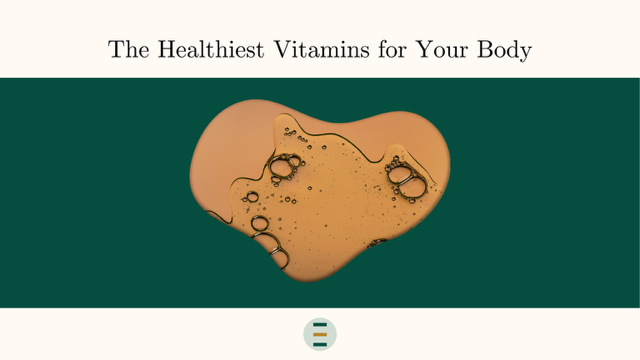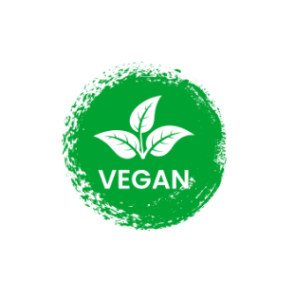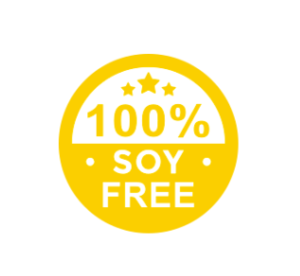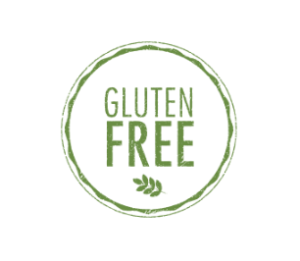The healthiest vitamins for your body – aren’t they all healthy? The short answer is unfortunately, no. Read further to find out why!
In the quest for optimal health, understanding the best forms of essential vitamins is crucial. For health enthusiasts, wellness seekers, vegans, and those following soy-free and gluten-free diets, knowing which nutrient forms are most beneficial can significantly impact overall health and well-being. Let’s explore the healthiest vitamins, highlighting their best forms for absorption and use.
How to Know the Source of Your Vitamins
Determining the source of your vitamins is a critical step in ensuring their efficacy and safety. Carefully read product labels, which should be fully transparent and indicate the origin of each ingredient. When searching for the healthiest vitamins, look for certifications from reputable organizations, such as Non-GMO Project Verified, as these indicate higher standards in sourcing and manufacturing. Research the brand itself; reputable companies often share detailed information about their sourcing practices and testing methods.
Additionally, consider reaching out to the manufacturer directly if you have specific questions about ingredient origins. Doing this research helps ensure your vitamins are both safe and aligned with your dietary preferences and ethical standards.
Non-Vegan Vitamin Sources
When following a vegan lifestyle, it’s important to be aware of vitamins and supplements that may contain animal-derived ingredients. Common non-vegan vitamin sources include vitamin D3 derived from lanolin, which comes from sheep’s wool, and vitamin B12 that is sometimes sourced from animal liver or muscle tissue. Vitamin A is another one to be aware of, sometimes being derived from fish liver. Vegan versions use beta-carotene from plants. Additionally, gelatin, used as a capsule material or as a stabilizer in some supplements, is commonly made from animal bones and connective tissues.
Always check labels for these ingredients and seek plant-based alternatives marked as vegan-friendly to ensure your supplements align with your dietary choices.
Vitamin D3 (Cholecalciferol)
Why It Matters: Vitamin D3 is vital for bone health, immune function, and mood regulation.
Optimal Form: Cholecalciferol (Vitamin D3) is the most effective form for supplementation. Vegan alternatives use lichen as a source, instead of the popular source derived from lanolin.
Health Benefits:
-
Bone Strength: Enhances calcium absorption, promoting stronger bones and teeth.
-
Immune Support: Bolsters the immune system, helping to ward off infections.
-
Mood Regulation: Linked to improved mood and reduced symptoms of depression.
Vitamin B12 (Methylcobalamin)
Why It Matters: Vital for energy production, brain health, and red blood cell formation.
Optimal Form: Methylcobalamin is the most bioavailable form of Vitamin B12. Unlike cyanocobalamin, it doesn’t require conversion in the body, ensuring more efficient absorption. Cyanocobalamin is a synthetic form of Vitamin B12 that is commonly used in supplements due to it’s cost effectiveness. Cyanocobalamin contains a cyanide molecule that is released and then excreted by the body, allowing the active B12 to be used effectively, but why use this form at all when better ones are available?
If you like to live a vegan and cyanide free life, ensure this vitamin isn’t paired with animal derived gelatin and look for the best and most bioavailable form out there.
Health Benefits:
-
Energy Levels: Supports energy metabolism by aiding in the conversion of food into energy.
-
Cognitive Function: Promotes brain health and supports neurological function.
-
Anemia Prevention: Essential for the production of healthy red blood cells.
Vitamin A (Retinyl Palmitate and Beta-Carotene)
Why It Matters: Essential for vision, immune function, and skin health.
Optimal Form: Beta-Carotene, a provitamin A carotenoid that is converted into active Vitamin A as needed. Beta-Carotene offers a vegan version derived from plants.
Health Benefits:
-
Vision: Maintains healthy vision and prevents night blindness.
-
Immune Support: Supports immune function and enhances mucosal barriers.
-
Skin Health: Promotes healthy skin and aids in cellular repair and growth.
Soy-Derived Vitamin Sources
For those adhering to a soy-free diet, it’s crucial to identify vitamins and supplements, such as Vitamin E, that might contain soy-derived ingredients. Soy is often used as a stabilizer or carrier in multivitamins and other supplements. Lecithin, a common emulsifier found in supplements, is sometimes soy-derived, which can be problematic for individuals seeking to avoid soy.
To ensure your supplements are soy-free, look for those specifically labeled as such, and check for alternative sources like sunflower lecithin or palm-based tocopherols where possible.
Vitamin E (Mixed Tocopherols)
Why It Matters: Powerful antioxidant that protects cells from damage.
Optimal Form: Mixed tocopherols, including alpha, beta, gamma, and delta forms, provide comprehensive antioxidant protection compared to isolated alpha-tocopherol.
Health Benefits:
-
Cell Protection: Shields cells from oxidative stress and free radical damage.
-
Skin Health: Promotes healthy skin by protecting it from environmental damage.
-
Immune Function: Enhances immune response and reduces inflammation.
Gluten-Containing Vitamin Supplements
Individuals with gluten sensitivity or celiac disease must be vigilant when selecting vitamin supplements, as many can contain gluten-derived ingredients. Gluten is often used as a filler, stabilizer, or binder in various over-the-counter nutritional supplements. Multivitamins, iron supplements, and certain brands of Vitamin C may contain gluten unless specifically stated as gluten-free. It’s critical to thoroughly read the labels and choose certified gluten-free products to avoid any adverse reactions.
While vitamins themselves do not contain gluten, some vitamin supplements might include gluten as an additive, filler, or binder. Here are some considerations:
-
Multivitamins: Some multivitamins may use gluten-containing ingredients, such as starches, in their formulations to bind agents together. It’s important to check labels for gluten-free certifications.
-
Chewable Vitamins: These can sometimes contain gluten in the form of malt or other additives for flavor and texture.
-
Capsules and Tablets: The excipients or fillers used in some capsules and tablets might contain gluten, especially if derived from wheat starch.




